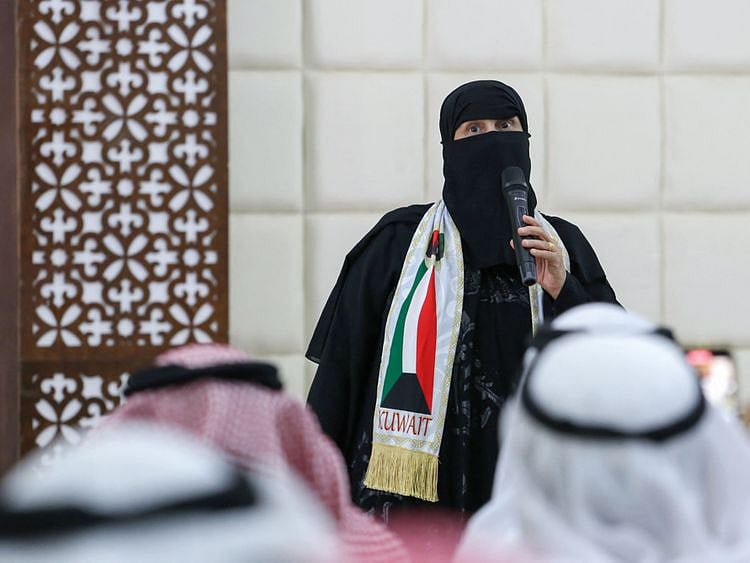Attack on woman on sidewalk fuels gender debate ahead of Kuwait’s elections
17 years after women were added to ballot, there’s no female member in National Assembly

Kuwait: After a video of a man beating his wife on a Kuwait sidewalk spread on social media this month, the outcry was swift. Anger grew once local media reported the cause of the assault: the woman had taken a job without her husband’s permission.
It’s one of a number of attacks, some fatal, against women in recent years that are focusing attention on gender-based violence, political representation and economic rights as Kuwaitis prepare to vote Thursday in a rare display of regional democracy.
Kuwait may be the sole Arab Gulf nation to offer its citizens a genuine say in how they are ruled. But 17 years after women were added to the ballot, there’s not a single female member in the 50-member National Assembly.
“We’re still convincing men that we are human, which is insane,” said activist Almaha Al Mari, 27. “Even progressive men in Kuwait think women have everything in the world they could have,” she said, a reference to a generous welfare state funded by the country’s oil riches.
Barely a handful of some 300 parliamentary candidates “- just 22 of them women “- have highlighted safety and equality, including issues of female pay, inheritance and property ownership. Their voices, though, have often been drowned out by anger over corruption and demands among some for the assembly to be given more powers in its struggle with a government appointed by the emir.
Elsewhere in the Middle East, women are demanding the end of repressive policies “- or winning some freedoms. The death of a 22-year-old in police custody in Iran this month after she was detained by morality police for allegedly breaking the country’s dress code sparked the biggest popular challenge to religious rules imposed on women since the 1979 revolution.
In Saudi Arabia, meanwhile, Crown Prince Mohammad bin Salman has been gradually loosening restrictions on women.
Activists complain that the push for equality in Kuwait has stalled. Women don’t require a man’s permission to travel or work. Yet in practice, they are often required to abide by the demands of a broadly traditional and conservative society.
“Most men believe feminism is something foreign, that’s why we are sensitive about it,” said commentator Hamad Al Jasser, who has 53,000 followers on Twitter. “We don’t think it matches the needs of our society.”
Kuwaiti women have for decades held senior posts in business, government and the diplomatic service, and served as lawmakers in previous assemblies. But the more recent, and well publicised, attacks on women have shaken the foundations of the laws and liberties their progress was built on.
Maasouma Mubarak, a former lawmaker and Kuwait’s first female government minister, said women also have to stand together to improve representation.
“We can’t deceive ourselves,” she said, “some women don’t feel that politics is the domain of women.”
Sign up for the Daily Briefing
Get the latest news and updates straight to your inbox
Network Links
GN StoreDownload our app
© Al Nisr Publishing LLC 2025. All rights reserved.